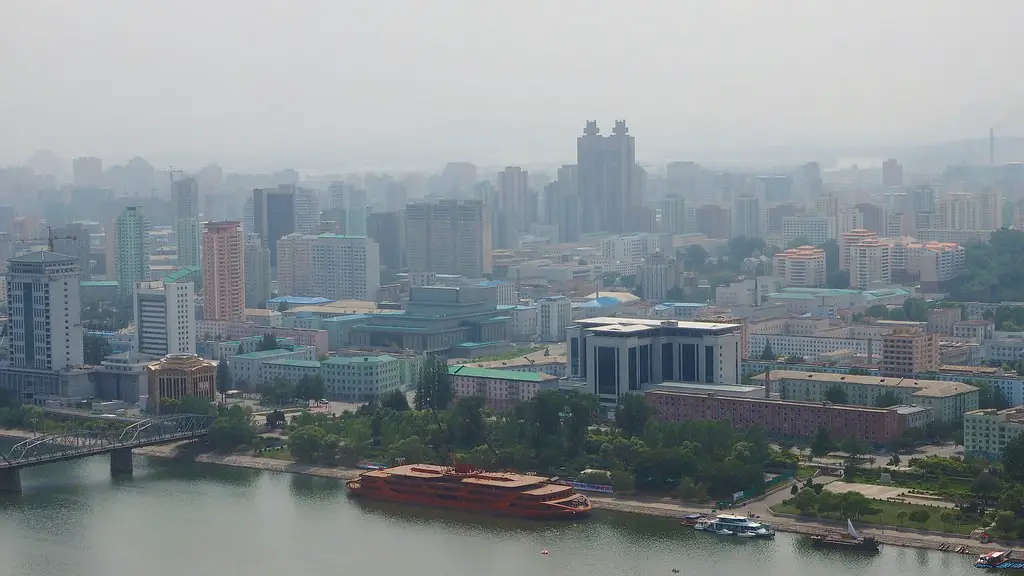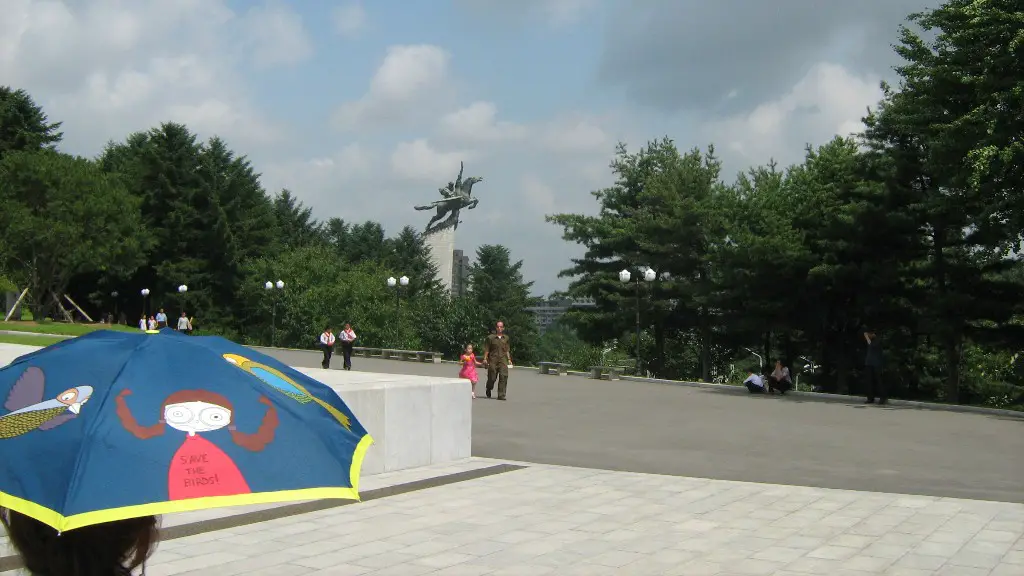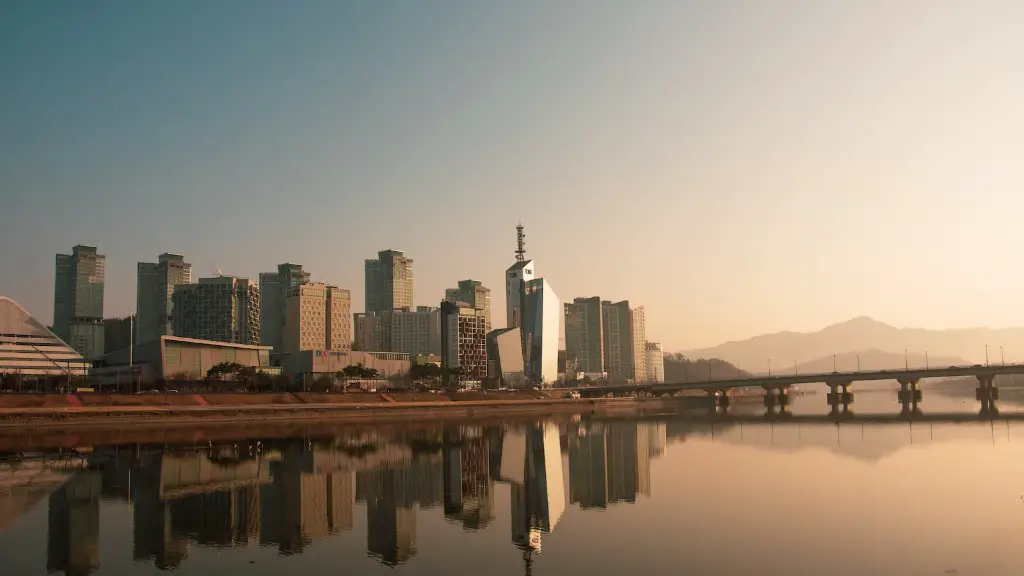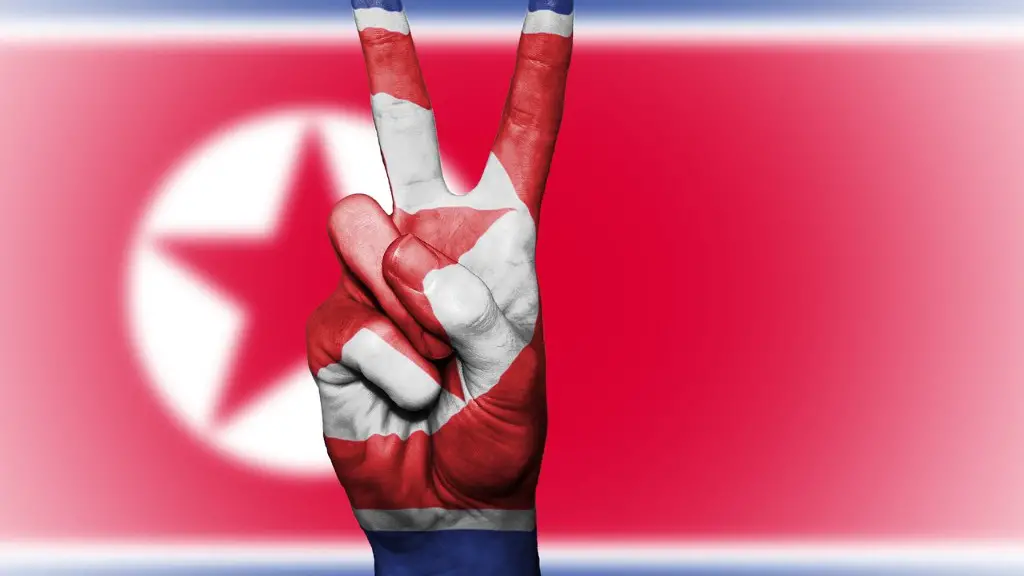The Democratic People’s Republic of Korea, better known as North Korea, has been a nuclear-armed state since 2003. North Korea’s nuclear weapons program began in the late 1950s when the Soviet Union supplied the country with nuclear technology and equipment. Since then, North Korea has been working to develop its own nuclear weapons capabilities.
In 2006, North Korea conducted its first nuclear test, and has since carried out five more nuclear tests. North Korea claims to have developed miniaturized nuclear warheads that can be fitted onto missiles, but it is not clear how many nuclear weapons the country has or how advanced its nuclear program really is.
Despite international condemnation and sanctions, North Korea has continued to pursue its nuclear program. In 2017, North Korea conducted more missile tests than any other country in the world. In September 2017, North Korea carried out its sixth nuclear test, which it claimed was a hydrogen bomb.
The nuclear program is a key part of North Korea’s national identity and is seen as a necessary deterrent against the threat of invasion by the United States or other countries. For North Korea, nuclear weapons are a symbol of power and prestige, and a way to ensure the country’s survival.
currently, it is estimated that north korea has between 10 and 20 nuclear warheads.
How strong is North Korea nuclear weapons?
North Korea is believed to have a small arsenal of nuclear bombs and is working to develop more powerful weapons. The last time North Korea tested a nuclear bomb was in 2017. The explosion at its Punggye-ri test site had a force, or “yield”, of between 100-370 kilotons. A 100 kiloton bomb is six times more powerful than the one the US dropped on Hiroshima in 1945.
North Korea is believed to have a stockpile of between 20 and 60 nuclear weapons, as well as a number of intermediate- and long-range missiles which could deliver them. It is also thought to have a significant chemical and biological weapons capability.
The Democratic People’s Republic of Korea (DPRK) is not a party to the Treaty on the Non-Proliferation of Nuclear Weapons (NPT). It withdrew from the NPT in 2003, citing US aggression and lack of respect for its sovereignty.
The DPRK has conducted six nuclear tests since 2006, the most recent of which, in September 2017, was its most powerful to date.
In November 2017, the DPRK test-launched a new intercontinental ballistic missile (ICBM), the Hwasong-15, which it claims is capable of reaching anywhere on the US mainland.
US President Donald Trump has vowed to prevent the DPRK from being able to strike the US with a nuclear weapon, and has threatened military action if diplomacy fails.
How does North Korea get nukes
North Korea has been able to extract plutonium, an atomic bomb fuel, from its Soviet-designed nuclear reactor in Yongbyon. This gives them the ability to produce weapons-grade enriched uranium, another bomb fuel. This is a major concern for the international community as it means that North Korea now has the capability to produce nuclear weapons.
Japan does not have any programs for the development of weapons of mass destruction (WMD), but it is the only non-nuclear weapon state in possession of a full nuclear fuel cycle and has advanced WMD-relevant industries. This means that Japan could potentially develop nuclear weapons if it chose to do so. However, Japan has a policy of not possessing, producing, or allowing the introduction of nuclear weapons into its territory.
Where would a nuclear bomb hit in the US?
The six most likely target cities in the US are as follows: New York, Chicago, Houston, Los Angeles, San Francisco, and Washington, DC. These countries will stay prepared to combat any type of nuclear attack shortly. The nuclear impact could destroy the city and this will lead to a disaster.
There is no real credible capability to shoot down an incoming intercontinental ballistic missile. No nation really has a credible capability in this respect. Whilst anti-ballistic missile technology exists, current technological advances do not stretch to a capable system to protect against even a limited ICBM attack.
How many nukes does Japan have?
The Japanese government has historically considered developing nuclear weapons, but has ultimately decided that this would make Japan less secure. Japanese opinion polls consistently express strong public opposition to nuclear weapons, and this is reflected in the views of elected representatives.
The time it would take for a land-based missile to travel between Russia and the United States is approximately 30 minutes. A submarine-based missile could strike in as little as 10 to 15 minutes after launch. This is due to the fact that submarines can travel at higher speeds and are less constrained by geographical features than land-based vehicles.
Can Russian nukes reach US
This is a serious concern, as it means that the US would not have much time to respond to a potential attack. The good news is that the US is working on a new missile defense system that should be operational by 2020. This system is designed to intercept and destroy incoming missiles, hopefully giving the US enough time to respond to an attack.
The United States and South Korea are working to move beyond the legacy of the Cold War. In 1991, the United States withdrew its arsenal of approximately 100 nuclear weapons from South Korea. Since then, no US nuclear weapons have been stationed in the country. The two countries are committed to working together to build a peaceful and prosperous future.
Does Germany have nuclear weapons?
Nuclear weapons are a controversial topic in Germany. While some argue that they are necessary for the country’s defense, others believe that they are a threat to global security. Germany is one of five NATO members to host US nuclear weapons on its territory as part of a nuclear-sharing agreement. The German air force is assigned approximately 10-15 B61 nuclear bombs, which are deployed at Büchel Air Base. Some Germans believe that these weapons make their country a target for attack, while others believe that they provide a valuable deterrent. The debate over nuclear weapons is likely to continue in Germany for many years to come.
It is reassuring to know that Canada is a peaceful nation that does not possess any weapons of mass destruction. This shows that Canada is committed to international peace and security, and is a responsible member of the global community.
Does Israel have nukes
Israel is believed to have first developed nuclear weapons in the 1960s, but has never confirmed this publicly. Instead, the country has adopted a policy of nuclear opacity, which means that it does not provide any information about its nuclear program. This policy allows Israel to keep its nuclear capabilities secret while still remaining a member of the nuclear Non-Proliferation Treaty.
France is one of the five nuclear weapon states recognized under the NPT, and it currently possesses the world’s fourth largest nuclear stockpile. France’s nuclear arsenal is deliverable by submarine and air-launched cruise missiles, making it a very formidable nuclear power.
What to do if a nuke is coming?
A nuclear explosion can cause extensive damage and loss of life. If you have warning of an explosion, take cover from the blast behind anything that might offer protection. If you are outside, lie face down to protect exposed skin from the heat and flying debris. After the shockwave passes, go inside the nearest building as quickly as possible.
These locales are considered safe because they do not have large urban centers or nuclear power plants. This means that they would not be targets in a nuclear war, and would not be affected by the fallout from a nuclear attack.
Final Words
As of early 2016, the U.S. Intelligence Community assessed that North Korea had produced nuclear weapons. But the size of North Korea’s nuclear arsenal was unknown, as was the status of its nuclear warheads and missile delivery systems.
There is no way to know for certain whether or not North Korea has nuclear warheads. However, it is believed that the country does have a small number of nuclear weapons. North Korea has been working to develop its nuclear capabilities for many years, and it is thought that the country now has the ability to produce nuclear weapons. While North Korea has not conducted any nuclear tests since 2009, it is believed that the country has the technology to build nuclear warheads.





